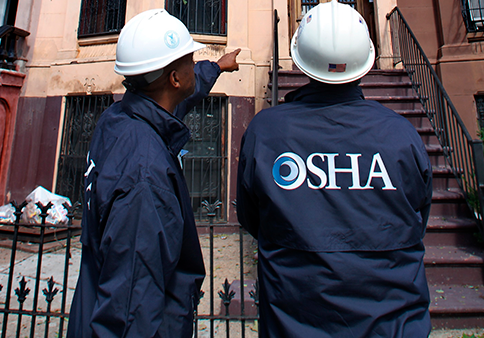Even the greatest businesses can find that determining what dangers employees could be subjected to is quite a challenge. Not knowing exactly what to do to protect your employees could put them in danger, leave your business vulnerable to lawsuits and eat away at your hard-earned profits. Fortunately, by taking a few precautions, you can minimize risks such as these and ensure you provide a safe place to work. Here are five precautions your business needs.
1. Educate Yourself About Workplace Hazards
The first step to making your workplace safe is knowing what hazards your employees could be subjected to. This is not as easy as it sounds — things you never imagined could harm your employees might one day cause unexpected problems. There are options for minimizing this danger, however. OSHA offers handbooks for small businesses and a health and safety manual to develop systems to ensure the health and safety of your employees. Those interested in pursuing formal education might also elect to work towards obtaining an emergency disaster management degree at a local community college or other educational institution.

2. Plan for Emergencies in Advance
It is mandatory that your business develop a plan to handle emergencies. OSHA requires that businesses with more than 10 employees keep such a plan in a place accessible to employees for review at all times. It’s essential that all exits are clearly marked and that the most effective escape routes are known to employees. Additionally, you should make sure these escape routes are cleared of debris and other obstacles. Take action to protect your business from fires by having fire extinguishers available and providing employee training on how to use them. Keeping first aid supplies on the premises and ensuring any hazardous chemicals or other supplies are labeled will also help ensure the safety of your employees.
3. Fight Contagious Disease
Ensure appropriate sanitation measures are taken to ensure diseases do not spread, such as making sure all dishes or mugs are cleaned properly and encouraging healthy practices among employees. Though there are no regulations requiring employers to give paid time off, providing this encourages employees not to expose others to contagious diseases.
4. Provide Respirators and Defend Against Respiratory Hazards
If your workers are at risk of inhaling smoke, gases or harmful chemicals, provide training on the protocol to be used for protecting employees from the harmful effects of these substances. You should also provide respirators to ensure employees have adequate supplies of oxygen.
5. Protect Against Blood-borne Pathogens
Proper measures should be taken to manage needles, because they can easily introduce diseases such as Hepatitis B and C and even HIV directly into an employee’s bloodstream. More than half a million injuries occur each year due to needles. To ensure any needles used at your workplace are safe, put them into a sharps container for collection and proper disposal.
By educating yourself and taking appropriate precautions to eliminate hazards before they occur, you can sidestep legal difficulties in addition to saving your business money and keeping it from losing the profits you’ve earned. Keeping your employees safe should be your number-one priority, and doing this involves evaluating what hazards your business has and making plans to combat them.
